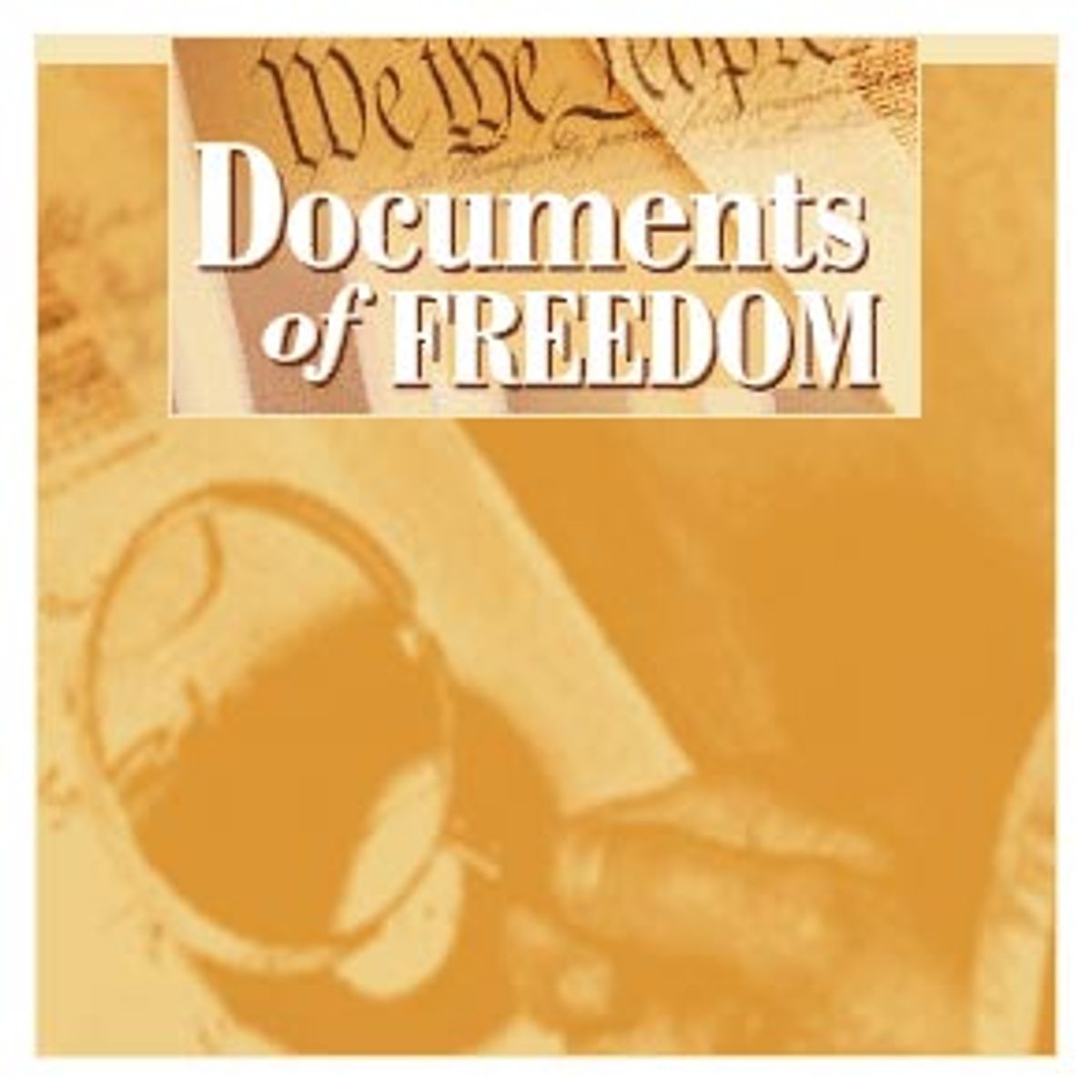We have no definitive text for the famous speech that Sojourner Truth made before a convention on women's rights in 1851 in Akron, Ohio. That's because her words were improvised and the speaker herself was illiterate. What we do have are a couple of versions, one set down years later by Frances Gage, an organizer of the convention, and some contemporaneous newspaper accounts that are a lot sketchier.
But in the unlikely event that Gage tweaked Truth's commonsensical eloquence a tad, we still lose out on the translation, for Sojourner Truth, a former slave unable to read or write, was one of the legendary orators of her time. Her words had the power to silence scoffers instantly and to coax forth floods of tears, but she had something else as well. "I do not recollect ever to have been conversant with any one who had more of that silent and subtle power which we call personal presence than this woman," wrote Harriet Beecher Stowe.
Nearly 6 feet tall and thin as a rail, Truth cut a striking figure before she opened her mouth, but even so she often had to win over the crowd. The story of the Ohio conference as Gage tells it is a typical scenario. Some of the women assembled -- who had been browbeaten for a while by eminent gentlemen over their presumptuous demands for voting rights, considering that they couldn't even climb into a carriage unassisted! -- were dismayed to see her in the room at all. They didn't want women's rights to get muddled up with the even more explosive issue of abolition. When Truth stood to speak, these women vainly urged Gage to keep her quiet.
But four or five sentences into the speech, they were cheering, and afterward they crowded around her in admiration. The speech is great in a way that no 19th century, and few 20th century, speeches dare to be -- simple, witty, direct, short. Truth heaps scorn on "that man over there" for calling women too frail to master their own lives. Hasn't she worked harder and suffered more brutality and heartbreak than "that little man in the black" will ever know?
A great deal of Truth's authority came from her own history. Born a slave in about 1797, she was sold five times before the state of New York, where she lived, abolished slavery in 1827. She was forever being separated from her family -- first her parents, and later one or another of her 13 children. In 1843, working as a servant in New York City, she experienced a religious calling, changed her name from Isabella Baumfree to Sojourner Truth and became a traveling preacher. She lived in utopian communities, exchanged ideas with progressive thinkers like Frederick Douglass and did the kind of work we'd call activism today -- advocating for abolition, and after the Emancipation Proclamation, helping former slaves start new lives -- until her death in 1883.
Truth's "Ain't I a Woman" is speech at its most elemental: unplanned, passionate, springing to life in the mouth of its speaker. It is acutely personal because it relies so much on the very person of the woman who speaks it -- the undeniable, unavoidable facts of her life -- and because it was pointed (as surely her long finger was pointed) right at the people who chose to ignore those facts. It is for all time, but it is also of a particular and heated moment. (Truth was nothing if not quick on the uptake. When a man told her that her speeches didn't amount to a fleabite, she replied, "Maybe not, but, the Lord willing, I'll keep you scratching.")
There's a cajoling side to the "Ain't I a Woman" speech, too, when Truth (who had a tendency to address her listeners as "honey") said, "What's intellect got to do with women's rights or black folks' rights? If my cup won't hold but a pint and yours holds a quart, wouldn't you be mean not to let me have my little half-measure full?"
It was a metaphor she used more than once, and a bit disingenuous. Truth was too wise not to know that the men she addressed were secretly worried that blacks and women, once unrestrained, might turn out to have "measures" exceeding their own. There's no need, after all, to hold back someone who's truly inferior. And surely Truth -- a self-made, indomitable, vagabond soul in the great American tradition -- knew that her own cup held far more than a measly pint. She held gallons if she held a drop.



Shares